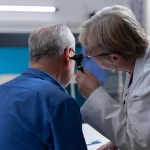Millions of people worldwide are navigating the very personal and difficult path that is the fight against drug misuse. Even though the battle might seem lonely, it’s important to keep in mind that there are a lot of tools accessible to provide the support and direction required to overcome addiction.
Enrolling in Professional Rehabilitation Programs
For many people struggling with drug misuse, professional rehabilitation programs are the cornerstone of their recovery. These programs provide a regulated setting where people can get all-encompassing care tailored to their unique requirements. Rehabilitation facilities are made to provide a secure and encouraging environment away from the stresses and disturbances of everyday life, enabling people to give their whole attention to their road to recovery. Rehab that is inpatient, often known as residential therapy, is a prolonged stay in a facility, usually lasting anywhere from thirty days to several months. Individuals get intense treatment sessions to address the psychological components of addiction during this period, both individually and in groups. Because this immersion method provides round-the-clock medical and emotional assistance, it is especially beneficial for those with severe addictions or co-occurring mental health conditions.
Seeking Support from Community-Based Groups
Community-based support groups are an essential tool for anybody trying to kick a drug habit. These organizations provide people a forum to interact with others going through comparable struggles, creating a feeling of belonging and support among members that is often essential for long-term rehabilitation. These groups’ understanding and support of one another can be a strong encouragement for members to stick with their recovery objectives. Alternative support groups, like SMART Recovery, which emphasizes self-empowerment and cognitive-behavioral techniques, exist in addition to 12-step programs. These support groups provide strategies for controlling cravings, reducing stress, and adopting healthier lifestyles. People can discover accountability and encouragement by attending community-based support groups; these are two things that are necessary for a successful recovery process.
Utilizing Hotlines for Immediate Assistance
A national substance abuse hotline can provide people and their loved ones with discreet, prompt support when they are battling drug misuse. These programs are accessible around the clock and provide vital information and support in times of need or when someone is ready to ask for assistance. Trained experts who work at hotlines can provide emotional support, crisis intervention, and recommendations for local resources and treatment programs. One well-known resource is the Substance Abuse and Mental Health Services Administration (SAMHSA) National Helpline, which provides 24/7 free and private support. Callers can get in touch with community-based organizations, treatment centers, and support groups via this hotline.
Exploring Holistic and Alternative Therapies
A complementary strategy to standard drug misuse therapy is provided by holistic and alternative treatments, which emphasize treating the whole person—mind, body, and spirit. With the goal of fostering balance and general well-being, these treatments assist patients in stress management, craving reduction, and quality of life enhancement. People can treat the root causes of their addiction and create a more robust and healthy lifestyle by including holistic methods in their recovery plan. The benefits of mindfulness and meditation in lowering stress and improving emotional control are well known. By encouraging people to become more conscious of their thoughts and emotions, these techniques assist people in identifying and coping with the triggers that lead to addiction.
Engaging in Continuous Aftercare and Support
For long-term drug addiction recovery to be maintained, aftercare and continuing assistance are essential. While finishing a treatment program is a big accomplishment, the road to recovery doesn’t end there. Aftercare programs make sure that the gains gained during treatment are maintained by giving participants the resources and encouragement they need to maintain their recovery and avoid relapsing. Rehab facilities that provide sober living spaces allow people to continue their rehabilitation in a controlled and encouraging atmosphere. These homes provide a drug-free living environment with often established norms and practices that support the development of new behaviors throughout treatment. In addition to providing peer support and responsibility, sober living homes can play a crucial role in assisting persons in readjusting to life after intense treatment.
Conclusion
Overcoming drug addiction is a complex and very personal process. People can discover the support and direction they need to take back their lives by investigating and interacting with a variety of services, such as holistic treatments, community support groups, and professional treatment programs. Every step one takes toward recovery takes them one step closer to a future free from the constraints of addiction and filled with health and fulfillment.















